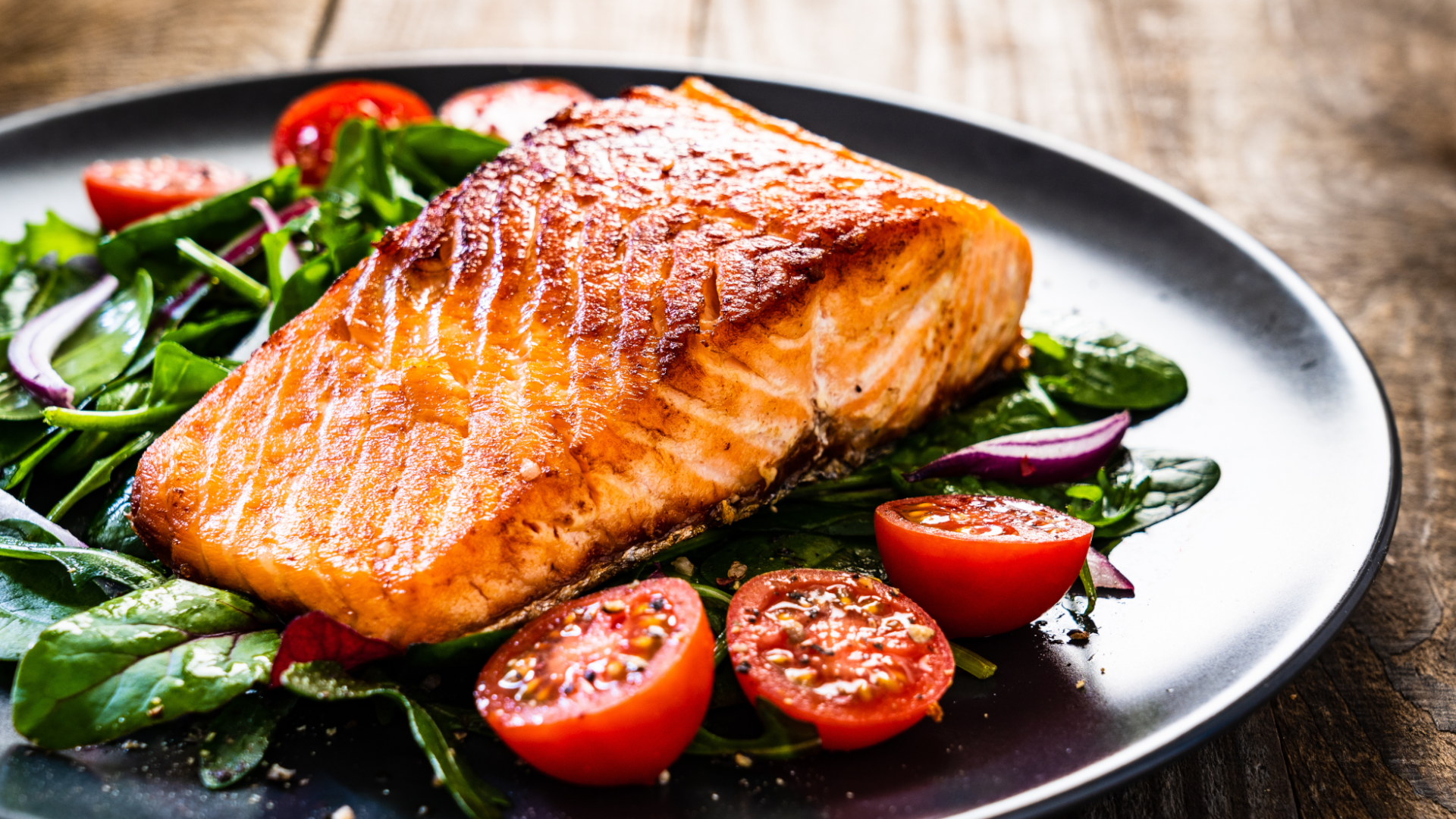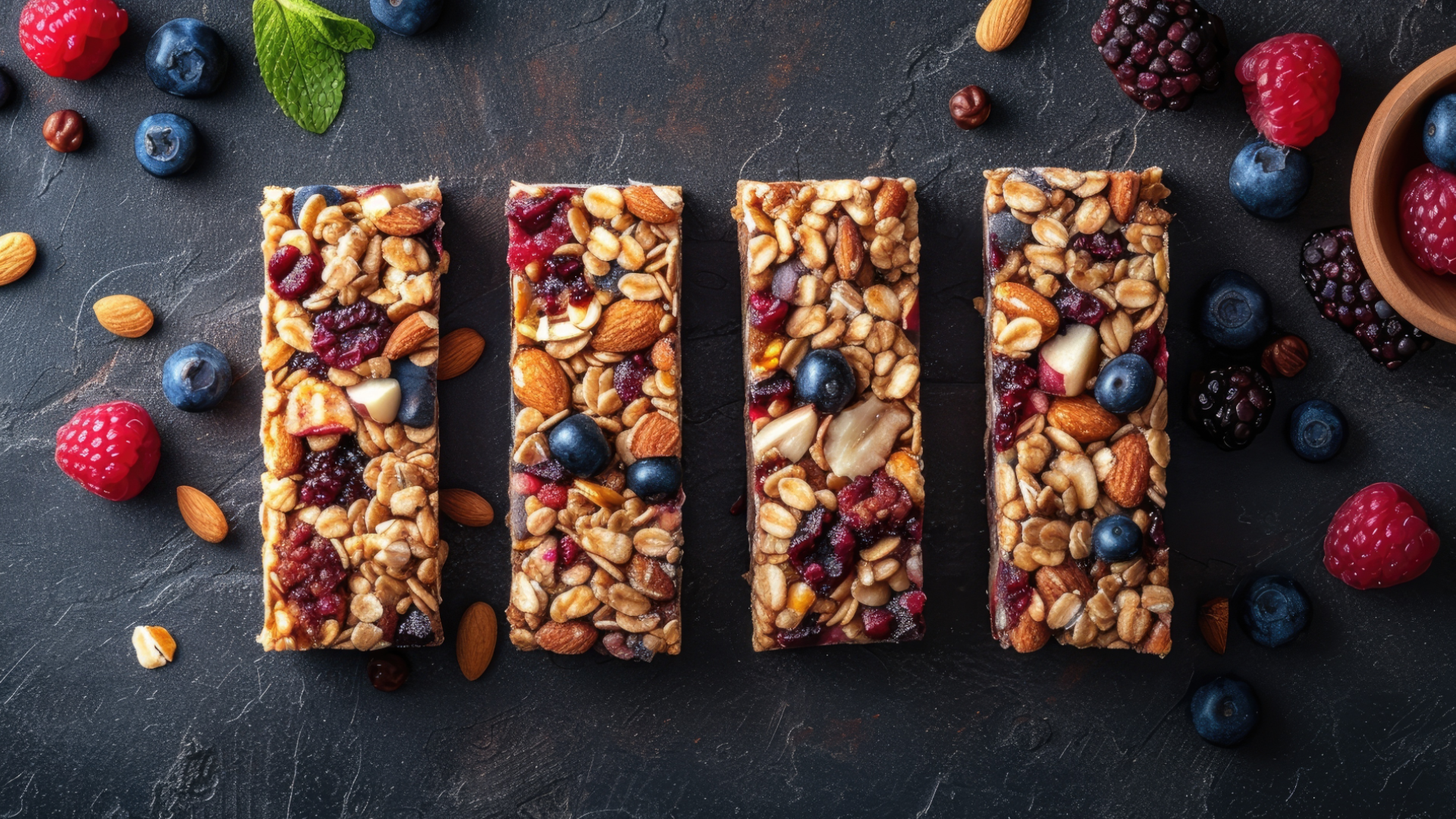Whether you're a part-time runner, a full-time HIIT enthusiast, a muscle-pumping bodybuilder or a hardcore hiker—getting the right fuel into your body is essential. No ifs, no buts—no compromises.
Armed with the right sports nutrition knowledge, you'll improve your energy levels, boost your athletic performance, and speed up recovery times between workouts.
Whatever your fitness goals, we're going to tell you everything you need to succeed with this ultimate guide to sports nutrition.
Call it your definitive practical handbook for fueling up like a pro.
Ready to level up your exercise nutrition?
Let's go.
What is sports nutrition, exactly?
For anyone looking to optimise their energy and gain a performance advantage when they're competing or working out, paying close attention to proper sports nutrition is important.
The concept of sports nutrition is simple: To develop a practical eating plan that suits your specific nutritional needs and gives you the fuel you need both before and after exercise.
You don't have to be a professional athlete to reap the body-boosting rewards of a solid sports nutrition strategy.
Whether you work out solely for fitness and well-being or you're a competitive athlete, working with the right nutrition strategies will become a real game changer.
Read: The science behind sports nutrition explained to delve deeper into how consuming the right foods will give you all the tools to level up your athletic performance.
Why is getting the right nutrition important for athletic performance?
There are plenty of sports nutrition myths floating around the health and fitness industry (including the misplaced notion that avoiding carbs is good and eating will make you fat. What?). But the bottom line is—consuming the right things at the right time will improve your overall health.
When it comes to sporting performance, some brilliant practical advice will go a long way. But, before we start looking at the types of nutritional fuel you need in your life, let's take a quick look at the role sports nutrition plays in boosting performance.
Sustained energy
It doesn't matter if you're a professional or amateur athlete, you need the right nutrition in your system. By consuming the right balance of foods both before and after your workouts, you'll boost your energy levels in a big way.
Eating well consistently will not only help you power up your workouts, but you'll also see your energy levels sustained consistently throughout the day. No more crashes, slumps or bouts of uncontrollable tiredness.
FYI: If you're an active person and you don't eat the right quantities (and mix) of foods, you run the risk of suffering from relative energy deficiency (RED-S). The effects of RED-S include reduced muscle strength, constant fatigue, irritability, increased injury risk, and fewer gains from your workout.
But, armed with the right knowledge, you'll keep RED-S at bay—and that's exactly what we will help you with during this guide to sports nutrition.
Sharper recovery
Did you know? The latest cutting-edge research shows that eating the right types of foods while staying hydrated during your workouts, will accelerate your recovery times between workouts.
Chowing down on plenty of quality proteins as well as complex carbohydrates both pre and post-workout will flood your muscles with the nutrients they need to repair and recover.
FYI: As a general rule of thumb, consuming between 1.2 and two grams of protein per KG of body weight will speed up your recovery times. Aiming for around one to 1.2 grams of quality carbs per KG of body weight will give you the glycogen stores you need for swift recovery between workouts.
Better gains

Another clear-cut way of getting your nutrition right is bigger, better gains. Yes, eating enough calories for your level of activity while consuming the perfect balance of lean protein, carbs, fruits, vegetables, and legumes will help you get so much more from your workouts.
Young athletes and seasoned sporting veterans alike will enjoy a greater return for their efforts by following an eating plan that supports their nutritional needs.
So, eat well, and you'll gain muscle, boost your performance, and even improve your body composition.
Pure power and endurance
Well-chosen nutrition strategies will also give you more power during your workouts. Fuelling your body with the perfect storm of nutrients will give you the kind of focus as well as the balanced energy release you need to dial up your athletic endurance.
Eating the right blend of proteins, complex carbs, healthy fats, fibres, and antioxidants will also prime your muscles to deliver more dynamic power when you exercise.
So, equipped with a solid eating plan, you'll literally become stronger, consistently boosting your performance in the process.
Better immune health and gut health
When you're on a quest to boost your athletic performance or improve your training regime, there's little room for error.
Life is busy, and it's easy to get run down. When this happens, illness and injury can creep in, especially when you're training.
But, armed with an eating plan filled with quality whole foods that agree with your stomach, you'll boost your immune system while keeping your gut healthy (there's not much room for getting the runs when you're trying to, well...run, after all).
So, use food, water, and the right supplements to fortify your immune system to stay strong and healthy.
Essential 'nutritional additions' to any good sports nutrition plan
Now you know why focusing on proper nutrition will boost your athletic performance—we'll carry on with the accessible guidance by looking at the absolute must-have nutrients for your athletic eating plan.
When it comes to squeezing maximum juice from your athletic performance, there are several nutrition strategies to explore.
But, without a doubt, the best to start is by knowing which nutritional bases to cover.
Let's take a look.
Macronutrients
First up, we're going to look at macronutrients. So, these particular nutrients cover proteins, carbohydrates, and fats—basically all of the vital components your body needs to function properly.
Let's kick things off with a few body-boosting protein additions.
Protein suggestions
Also known as the body's building blocks, proteins are made up of amino acids that support body maintenance, repair, and muscle growth. Here are the proteins that you should consider as part of your nutritional plan.
- Chicken breast
- Lean turkey
- Lean pork or beef cutlets
- Wild-caught fish
- Nuts, seeds, and grains (preferably non-salted)
- Low-fat cheeses and cottage cheese
- Grains and legumes
- Eggs
- Tofu (for you epic plant-based athletes)
Carbohydrate suggestions

Carbs are your body's main energy source. It's what your muscles, tissues, and various internal systems prefer to use as fuel. So, weaving plenty of high-quality carbs into your diet will sustain your energy levels and elevate your athletic performance. Try adding these foods to your eating plan.
- Bread (preferably whole grain)
- Sweet potato
- Legumes
- Quinoa
- Brown pasta
- Porridge oats
- Fruits
- Non-starchy veg like carrots, Brussels sprouts, and broccoli
Fat suggestions
Yes, any good nutritional plan should include a good dollop of healthy fats. Eating good fats is essential for producing hormones, maintaining a healthy metabolism, and boosting recovery. Consuming omega-3 fatty acids will also help you fight inflammation.
So, what are the 'healthy fats, exactly, and which ones should I eat?'
Let's explore.
- Seeds (including sunflower, pumpkin, flax, and chia)
- Nuts and nut butters
- Avocado
- Fatty fish
- Olive oil
Read: How to meal prep for sports nutrition success for top tips on how to maintain your performance-boosting eating habits when you're busy.
Micronutrients
In addition to weaving a balanced mix of macronutrients into your nutritional plan, there are certain micronutrients you should consider.
Basically, micronutrients are the various vitamins and minerals your system needs to perform at its best. Unlike macronutrients, you need smaller doses of micronutrients to stay fit and healthy.
Some of the most popular sports supplements contain a balanced mix of performance-boosting micronutrients. But, it's important to get some of these essential vitamins and minerals from quality food sources.
So, what micronutrients do you need to maintain your health and improve your athletic prowess?
Once again, let's take a quick look.
Sodium (salt)
The right amount of sodium can improve hydration, help you maintain healthy fluid levels, and help to improve your athletic endurance. It's a win-win-win.
Vitamin B
A decent daily dose of vitamin B will help to support a healthy nervous system while making your body more efficient when it comes to aerobic energy production.
Vitamin K
Getting enough vitamin K in your diet will help to improve your heart and bone health which will benefit your overall athletic performance while reducing your risk of injury.
Calcium
You'll no doubt know that calcium is good for your bones and teeth. But, did you know that it can also help you maintain healthy testosterone levels if you're a man? So, get your daily dose.
Selenium
This powerful antioxidant contributes to keeping your internal system clean while helping to prevent cell damage—making it an essential micronutrient for any health-conscious sports enthusiast.
Magnesium
Last but not least, we have magnesium. This superstar of a mineral will help you regulate your sleep patterns while helping with stress management. So, make sure you get your fix.
TOP TIP: The best way to make sure you get all of these micronutrients is to eat a variety of the macronutrient sources we've mentioned here in this guide.
'Eating the rainbow' (consuming as many different coloured fruits and veggies as you can) while getting enough lean protein will help you cover pretty much all bases.
Adding vitamin supplements to your nutrition plan will also help you fill in any nutritional gaps and power up your performance.
Plant-based power-ups
Here are a few additional suggestions for you plant-based athletes looking to level up your performance.
In addition to the epic vegan whole foods we've already mentioned, these body-boosting ingredients will push you ahead of the pack.
- Edamame beans
- Tempeh
- Puy lentils
- Seitan
- Nutritional yeast
- Soy milk or yoghurt
Read: Our essential guide to plant-based sports nutrition for all of the tips, knowledge, and insider hints you need to succeed.
Nutritional swaps that will level up your sports nutrition plan
You don't have to be an experienced nutritionist to create a performance-boosting eating plan. And, if you're looking to boost your sports performance, there are simple foodie swaps you can make that will make all the difference to your diet.
A few smart foodie swaps will add that extra bit of body-boosting power to your workouts while giving you the extra energy you need throughout the day.
Try these easy-peasy nutritional swaps, and you'll see your performance soar:
- Swap processed carbs for whole grains
- Swap incomplete proteins for complete proteins
- Swap saturated fats for unsaturated fats
- Swap sugary snacks for juicy fruits
- Swap caffeinated drinks for electrolytes (more on that later)
Read: For a deeper dive into these performance-boosting diet tweaks, check out our must-read guide on essential sports nutrition swaps.
Essential sports nutrition tips for the best long-term results
Now that you know which types of food to add to your epic training diet, let's dig a little deeper with practical tips that will flood your body with energy and power while giving you serious sticking power.
Hydration

First of all, keeping hydrated throughout the day is essential to staying focused and getting the most from your training session.
With the right hydration strategies in place, you'll optimise your brain and body for the best possible training outcomes. So, drink plenty of water throughout the day, and you'll level up your sports performance in a big way.
TIP: As a general rule of thumb, you should aim to drink around 15.5 cups of water every day. You should also top up your hydration levels before, during, and after your workouts.
Electrolytes
If you're training hard regularly, you'll need to restock your electrolytes to regulate your most essential bodily functions.
When you sweat or strain your body excessively, your body will start to lose electrolytes. So, consuming electrolyte-rich foods after your workouts is essential to maintaining a successful sports nutrition plan.
Try some of these foods on for size:
- Spinach
- Kale
- Potatoes
- Tofu
- Beans
- Almonds
- Watermelon
- Oranges
- Bananas
- Tomatoes
- Milk
Read: Our deep dive into the role of electrolytes in sports nutrition for more insider tips and essential advice from Crazy Nutrition HQ.
Morning fuel
While eating breakfast is by no means compulsory, a solid morning training session commands the right fuel.
To get your morning training session off to a flying start and fight that 'a.m. fatigue', eating around an hour before getting your heart pumping is your best bet.
Aim to get a well-rounded mix of all the essential macronutrients we discussed earlier to optimise your energy levels. Oh, and (we'll say it again), drink enough water.
Read: Our guide on how to fuel up your early morning workouts and discover how to fuel your dusk training sessions the right way.
Meal prep
Life is busy, and when you're juggling more plates than a pot wash on a Saturday night, your nutrition can fall by the wayside.
To fight the temptation to grab greasy convenience foods, many an elite performer or champion athlete preps their meals in advance.
Getting your meal prep right will empower you to consume the nutrients you need to fuel your training efforts consistently—even when you're flat out.
Need a little help? Check out these practical meal prep tips.
Timings
Whether you're a sports person or someone looking to improve their fitness levels, getting your timing right is important.
Enjoying your meals or supplements at the right time will have an impact on your performance and endurance during training as well as your recovery after each session.
FYI: Eating a well-rounded meal around one to two hours before your workouts will give you enough energy to power on through.
Here are some additional timing tips to help you with your sports nutrition strategy:
- Aim to eat a meal that consists of between 20 and 40 grams of protein every three to four hours throughout the day
- Get a decent dose of protein within two hours of your workout to aid muscle growth and recovery
- Try eating between 30 to 60 grams of carbohydrates around 30 minutes after your workout to avoid excessive hunger pangs or energy dips
Supplements
Last but certainly not least, we arrive at supplements. Taking the right supplements will help you fill in any gaps in your nutritional plan while giving you the extra energy you need to level up your training sessions.
From pre-workouts to creatine, whey protein, and beyond, weaving supplements into your daily routine will give you the edge you need to push yourself further.
CrazyNutrition's epic supplements will help you reach your athletic ambitions. Take a look at each of our body-boosting formulas, choose one that suits your specific needs, and you'll smash your fitness goals in no time.
Final thoughts...
When it comes to nutrition, balance is everything. To stay motivated, avoid performance-sapping energy slumps, and consistently exceed your fitness goals, getting the right dose of macros and micronutrients for your athletic needs is essential.
While this guide isn't a nutrition bible, it serves up all of the advice you need to improve your training outcomes as well as general well-being with a plan that works for you.
Get your timings right, listen to your body, fill in the gaps with the right sports supplements—and you'll be unstoppable.
Oh, and if you're looking to level up your training, Crazy Nutrition has your back.



